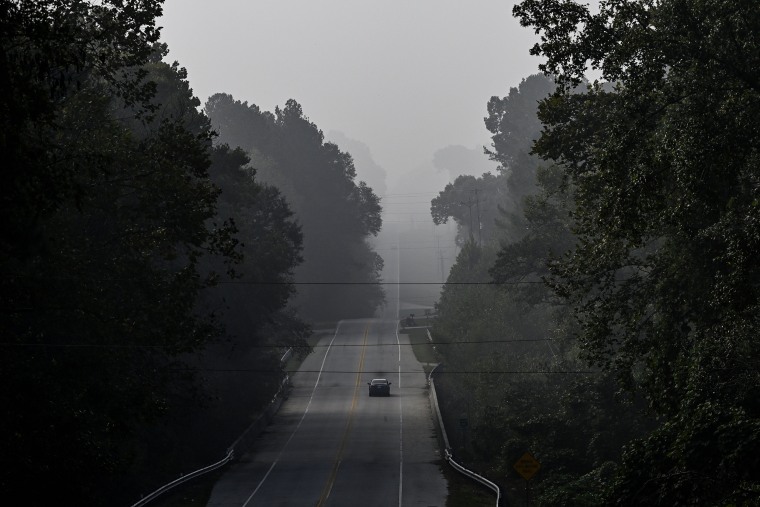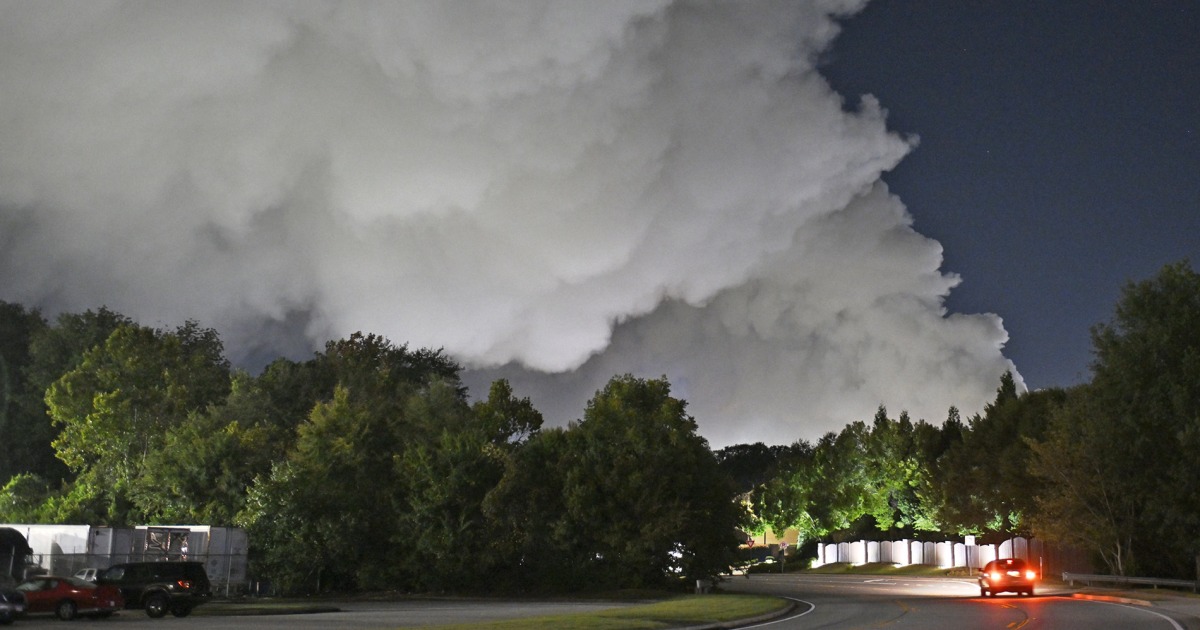It was a chemical reaction that sparked the massive fire and toxic smoke plume at a lab in Georgia that threatened nearby communities and metropolitan Atlanta in September, according to the findings released by the U.S. Chemical Safety Board (CSB).
The board released its findings Friday following an investigation into the Sept. 29 chemical fire at a BioLab plant in Conyers, Georgia.
The safety board said the main substances involved were a collection of chemicals that are commonly used for cleaning and disinfecting: bromochloro-5,5-dimethylimidazolidine-2,4-dione (BCDMH), trichloroisocyanuric acid (TCCA) and sodium dichloroisocyanurate (DCCA). The chemicals were stored in the plant’s warehouse and generated heat, eventually leading to their breakdown and resulting in the release of toxic vapors and fires, the CSB said in its report.
“The resulting massive plumes of toxic smoke contained chlorine and other hazardous substances and caused significant offsite impacts,” the CSB said.
Operator KIK Consumer Products runs the BioLab facility in Conyers, which makes Clorox-branded pool-cleaning products made with chlorine.
The CSB said the incident began at around 5 a.m., when a BioLab employee on fire watch heard “a popping sound” in one of the warehouses. Eventually, the employee called 911 because “large hazardous plumes of toxic vapors” had been released inside the warehouse.
“By 6:30 a.m., flames became visible above the area of the chemical reaction and were quickly extinguished in less than two hours,” the CSB said, adding that another, larger fire broke out shortly before 12:30 p.m. and was eventually extinguished at around 4 p.m. The fires completely destroyed that warehouse, known as plant 12.

It was then that emergency responders began evacuating the area, according to the CSB. Around 17,000 people in the nearby community were evacuated and more than 90,000 people in the metropolitan Atlanta area were told to shelter in place. The last shelter-in-place warning regarding the incident was issued on the evening of Oct. 16 and expired the following day.
The Environmental Protection Agency found elevated chlorine and hydrogen chloride levels during air monitoring it conducted from Sept. 30 to Oct. 2, the CSB said. The agency continued monitoring the air until Oct. 17, when it detected low chlorine levels at 11 monitoring stations around the site of the incident.
CSB Chairperson Steve Owens said the incident and the risk it brought to Rockdale County were “completely unacceptable.”
“Reactive chemical incidents can have severe environmental and public safety impacts due to the combination of fire, toxic gas emissions, and hazardous materials involved, and Bio-Lab and any other facility that has reactive chemicals onsite must manage those materials safely,” Owens said in a statement.
The CSB’s investigation into the incident is ongoing, as it continues to look into the cause of the chemical’s decomposition, the storage and handling of the chemicals, as well as industry guidance for fire safety concerning such chemicals.
The board will provide its findings and recommendations in its final investigation report.

Leave a Reply